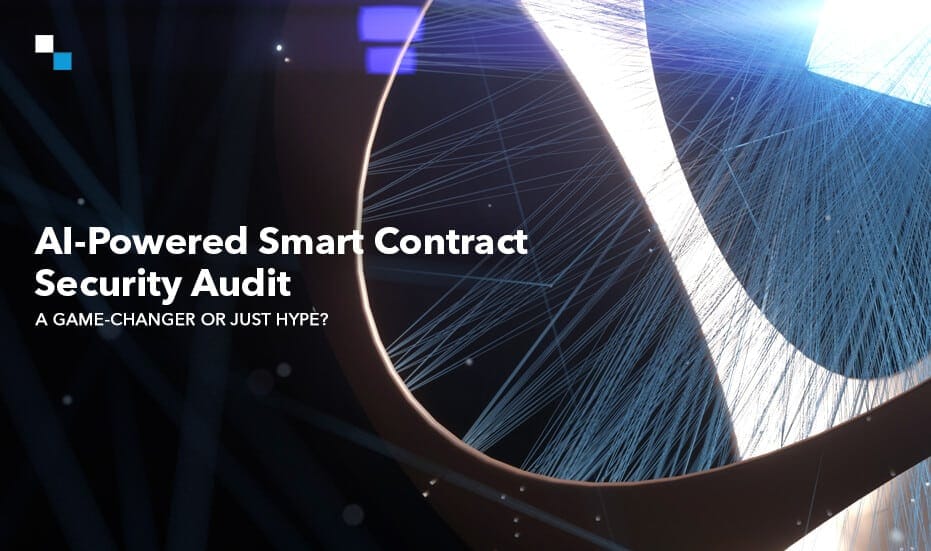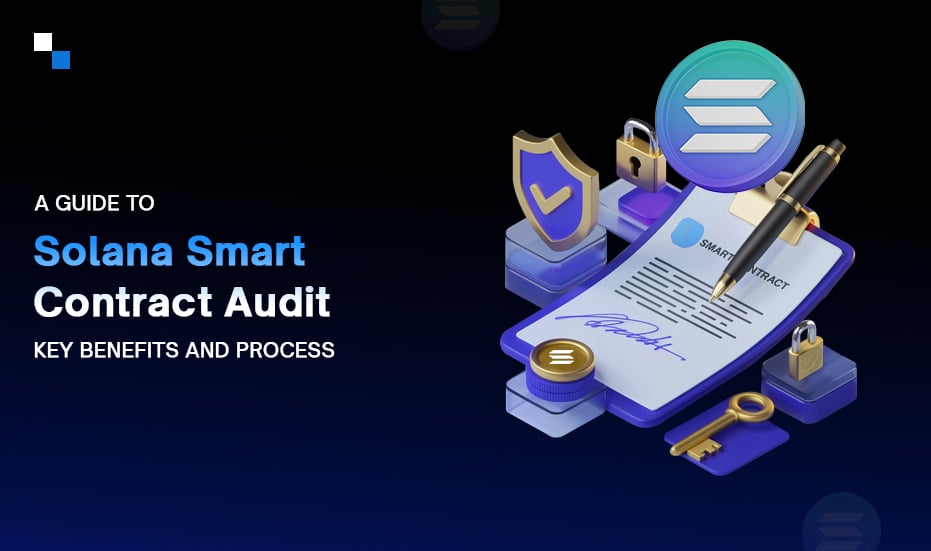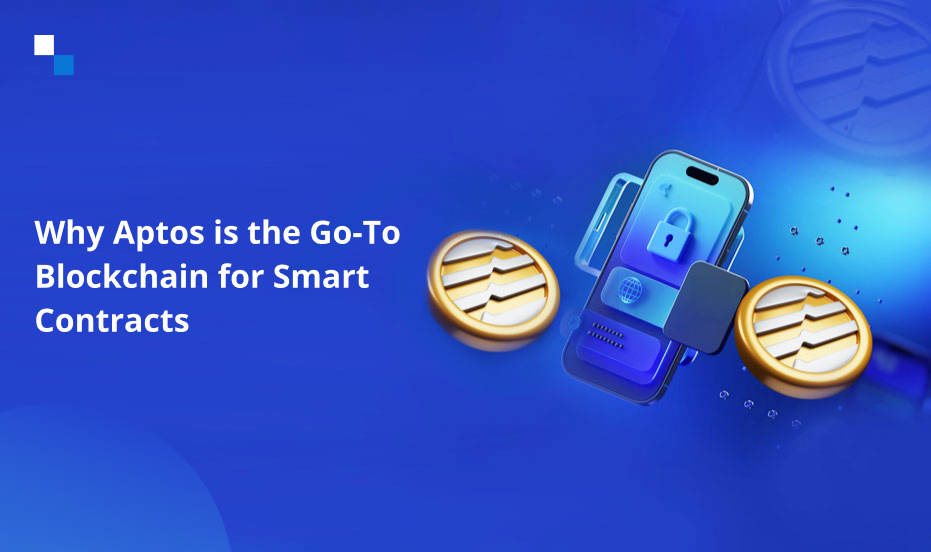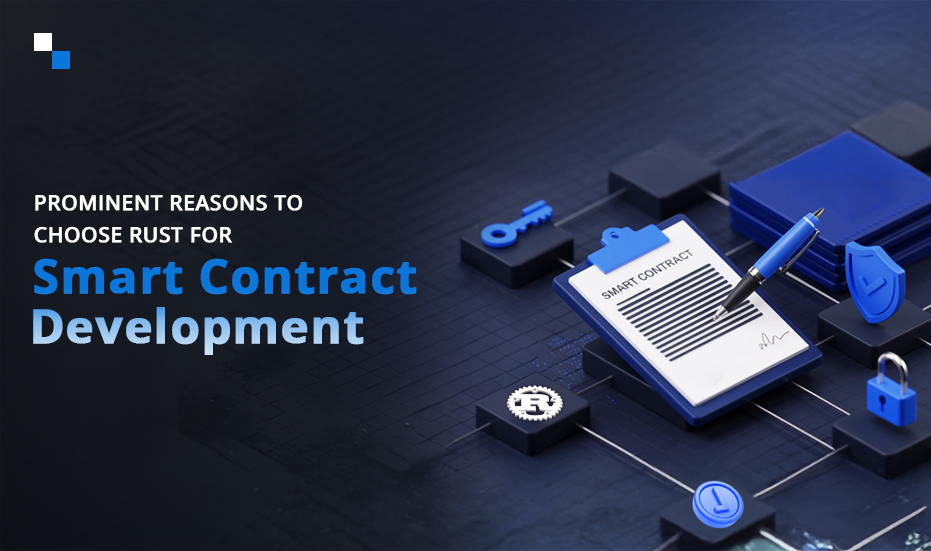
Metaverse Platform Development to Facilitate Remote Work
February 6, 2024
Generate Passive Income with Crypto Wallet Development in 2024
February 6, 2024Smart contracts act as a backbone of blockchain that facilitates transactions across various industries. However, these self-executing contracts are also often the target of attacks due to the large sum of money transferred through them. Additionally, the intricacies of the contract’s code raise security concerns, necessitating a smarter approach to address these challenges and AI-powered smart contract security audit is one of the promising solutions one can consider in 2024.
The smart contract auditing practices, including manual code review and testing, are time-consuming. It is imperative to adopt a more advanced and efficient solution, and AI-powered smart contract security audit is a great thing to start with. In this blog, we will take a closer look at the recent surge in AI-driven smart contract security audits-
The Role of AI in Smart Contract Security Audits
With the increased adoption of dApps and smart contracts, businesses must prioritize security measures to safeguard their assets and ensure the integrity of their digital transactions. The introduction of AI in a smart contract security audit helps address the burgeoning threats of cyber attacks and mitigate the losses associated. AI-driven solutions utilize machine learning algorithms to analyze and identify potential vulnerabilities in smart contracts, which contributes to the creation of a more secure blockchain environment, where any number of conditional transactions can be performed with confidence.
Here are the key highlights of how AI is reshaping the smart contract security audit-
- Automated Code Analysis
AI-powered smart contract security audit tools can automatically examine the contract code’s logic and identify security vulnerabilities. Such AI-driven approaches to smart contract auditing speed up the security check process and allow businesses to deploy contracts rapidly.
- Pattern Recognition
AI involves the use of machine learning algorithms that can identify patterns or find anomalies within extensive data sets. When it comes to a smart contract security audit, AI uses this algorithm to dig deeper into significant historical data to detect common vulnerabilities that might be overlooked by human analysis.
- Continuous Monitoring
Imagining the continuous monitoring of smart contracts with the traditional auditing approaches is hard. However, with AI-powered solutions, it is feasible. AI-based smart contract security audit performs real-time analysis, aiding in the identification of potential vulnerabilities and reducing the chances of attacks by malicious entities.
- Scalability
Scalability is one of the challenges faced while security auditing, however AI-driven tools can simply tackle this issue. AI-powered tools can analyze a vast number of smart contracts simultaneously without losing the efficiency that manual audits might compromise. Several smart contract audit firms are actively AI for this purpose.
Key Challenges in Adopting AI-Powered Smart Contract Security Audit
- Complexity
Designing and implementing AI systems is a complex task. A good understanding of AI and blockchain technologies is required to implement these technologies for enhanced smart contract security. However, the positive aspect of this situation is that this complexity opens up career opportunities for experts in AI.
- Resource-intensive
AI algorithms need a large amount of computational power and data storage that makes AI integration into blockchain systems difficult, especially for smaller organizations or startups with budget constraints. It somehow fuels the demand for efficient AI algorithms and the creation of scalable solutions.
- Trust issues
Users’ primary concerns often revolve around the transparency and reliability of AI systems, significantly impacting their trust in AI-enhanced smart contract security. However, this challenge also provides developers with an opportunity to create transparent AI systems that can help regain user confidence.
How to Strike a Balance Between AI and Human Expertise?
Several experiments have pointed to the fact that current AI model tools can detect security vulnerabilities. However, the human professional’s editing expertise remains irreplaceable. It’s important to note that GPT-4 fetches the publicly available data up until 2021. It means it is not able to identify the vulnerabilities emerging after 2021.
Human auditors and developers at smart contract audit firms always keep themselves updated with the latest trends and potential vulnerabilities. Hence, considering AI tools as an auditing companion would be a wise move to speed up the work. However, the reliability of humans is still required for the most effective defense against the latest threats.
So, the future of a smart contract security audit involves the collaboration between human expertise and constantly improving AI tools. Use AI to identify the common vulnerabilities and rely on human expertise for the latest advances and updates. The combined efforts of AI and blockchain will add value to the smart contract security experience.
AI won’t replace humans. However, human auditors leveraging AI tools effectively will be more reliable than depending solely on this emerging technology.
Conclusion
Although AI brings automation and a higher level of efficiency to smart contract auditing, challenges still remain in the crypto space. The continuous refinement of AI algorithms is required to safeguard blockchain security against ever-evolving attacks. Additionally, the transparency of AI-generated findings is also pivotal to fostering user’s trust in the auditing process. AI technology can aid human auditors in a smart contract security audit. However, it can’t replace humans due to the inconsistency of their results.
Antier is one of the reputed smart contract auditing firms, where professionals follow a collaborative approach of human expertise and AI solutions to ensure smart contract security. We leverage the potential of powerful complementary AI tools as well as be updated with the new trends to enhance overall security while preserving the principles of decentralization.



